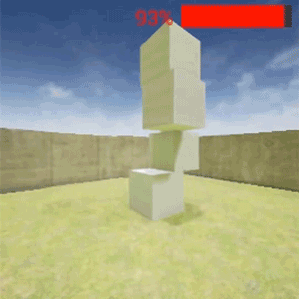Artificial-Intelligence Researchers – Learn some of the Basic Physical Common Sense
In an attempt to discover how computers could learn some of the basic physical common sense, artificial intelligence researchers have undertaken a project for the same. For instance to comprehend unsupported objects tend to fall or a large object does not fit inside a smaller one, seems to be the main way human tend to predict, communicate and explain regarding the world.
Chief technology officer of Facebook, Mike Schroepfer, state that if machines are to be more useful, they would need the same type of good judgment of understanding. He had informed at a preview recently of results, he would share at the Web Summit in Dublin, Ireland, that they have got to teach computer systems to comprehend the world in the same way. Human beings at a young age, tend to learn the basic physics of reality and by observing the world.
Facebook had drawn on its image processing software in creating a technique which learned to predict if a stack of virtual blocks would tumble. The software tends to study by gaining access to images of virtual stacks or at times two stereo images like those that form a pair of eyes.
Crafting Software – Comprehend Images/Language of Deep Learning
It had been shown in the learning phase, that several various stacks some of which had toppled while the others did not. The simulation showed the learning software the result and after adequate examples, it was capable of predicting for itself with 90% accuracy if a certain stack would possibly tumble. Schroepfer comments that if one runs through a series of tests, it would beat most of the people.
Facebook’s artificial intelligence research group in New York had done the research. It concentrated on crafting software which could comprehend images as well as language utilising a technique of deep learning. Recently the group also showed off a mobile app with the potential of answering queries regarding the content of photos.
The director of the group, Yann LeCun who is also a professor at NYU, informed MIT Technology Review that the system for predicting when block would topple indicates that more complex physical simulation could be utilised in teaching additional basic principles of physical common sense. He added that `it serves to create a baseline if we train the systems uncontrolled and it would have adequate power to figure thing out like that’.
Memory Network
His group had earlier created a system known as `memory network’ which could pick up some of the basic common sense as well as verbal reasoning abilities by reading simple stories and now progressed, in helping in influencing a virtual assistant that Facebook tends to test known as M. M has more potential than Apple’s Siri or similar apps since it is powered by bank of human operators.
However Facebook expects that they would steadily tend to become less important as the software learns to pitch queries for itself. Schroepfer informs that adding the memory network to M is showing how that could happen. By observing the interactions between people utilising M as well as the responds of customer service, it has learned already how to manage some of the common queries.
Facebook has not made a commitment of turning M into a widely available product; however Schroepfer states that the results indicate how it could be possible. He adds that the system has figured this out by observing humans and that they cannot afford to hire operators for the entire world but with the right AI system, they could organize that for the whole planet.








